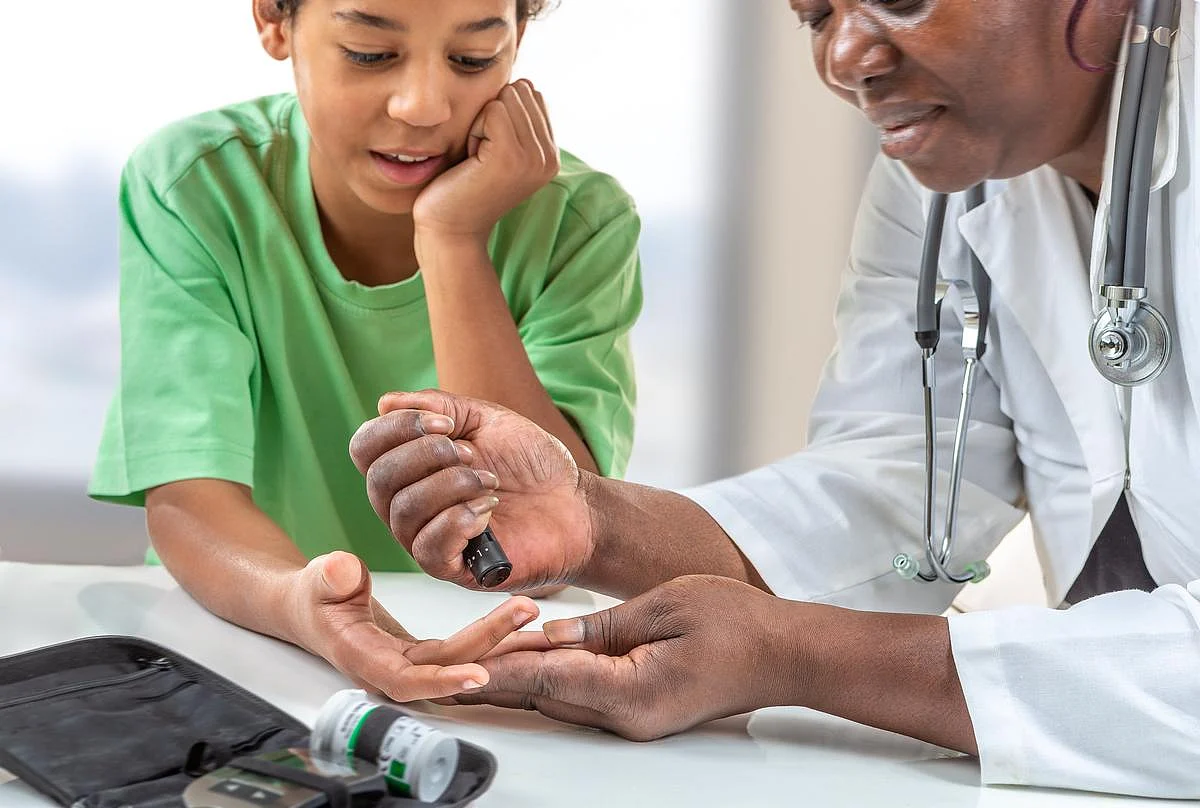New Subtype of Diabetes Identified in Sub-Saharan Africans, Black Americans
FRIDAY, Aug. 1, 2025 -- A new diabetes subtype has been identified in Sub-Saharan Africans and Black Americans, according to a study published online July 21 in The Lancet Diabetes and Endocrinology.
Jean Claude Katte, Ph.D., from the University of Exeter Medical School in the United Kingdom, and colleagues conducted an observational, cross-sectional study involving participants without obesity of Black African ethnicity with young-onset (younger than 30 years) insulin-treated clinically diagnosed type 1 diabetes (248, 370, and 276 from Cameroon, Uganda, and South Africa). Islet autoantibodies were measured to GADA, IA-2A, and ZnT8A, and a genetic risk score (GRS) was calculated for type 1 diabetes. These findings were compared to those for participants with self-reported Black and White ancestry (429 and 2,602 participants, respectively) with type 1 diabetes from the U.S. SEARCH for Diabetes in Youth (SEARCH) study.
The researchers found that only 34.9 percent of participants were positive for islet autoantibodies; they had classic features of type 1 diabetes, including plasma C-peptide <200 pmol/L (82.7 percent) and a high type 1 diabetes GRS. Compared with those with autoantibodies, those without islet autoantibodies had a significantly lower median type 1 diabetes GRS (9.66 versus 11.76); their clinical features and C-peptide concentrations were not consistent with that of type 2 diabetes. Autoantibody-negative diabetes was also seen in 15.1 percent of participants with Black ancestry in SEARCH; these participants also had a low type 1 diabetes GRS (median, 10.41). No such pattern was seen in White participants in SEARCH.
"This suggests that many young people in this region have a different form of type 1 diabetes altogether and is not autoimmune in origin," coauthor Dana Dabelea, M.D., Ph.D., from the Colorado School of Public Health, said in a statement.
Disclaimer: Statistical data in medical articles provide general trends and do not pertain to individuals. Individual factors can vary greatly. Always seek personalized medical advice for individual healthcare decisions.
© 2025 HealthDay. All rights reserved.
Read this next
Features of Immunesenescence Present in Early Stages of Rheumatoid Arthritis
THURSDAY, Sept. 11, 2025 -- Some features of immunesenescence are present in the very early stages of rheumatoid arthritis (RA), according to a study published online Sept. 3 in...
Urine Biomarker Panel Sensitive, Specific for Prostate Cancer Diagnosis
THURSDAY, Sept. 11, 2025 -- A urine-based biomarker panel has high accuracy for diagnosing prostate cancer (PCa), according to a study published in the September issue of...
Hospitals Vary in Their Definition of Blood Culture Contamination
THURSDAY, Sept. 11, 2025 -- U.S. hospitals vary in how they define blood culture contamination (BCC), according to a study published online July 11 in the Journal of Clinical...
More news resources
- FDA Medwatch Drug Alerts
- Daily MedNews
- News for Health Professionals
- New Drug Approvals
- New Drug Applications
- Drug Shortages
- Clinical Trial Results
- Generic Drug Approvals
Subscribe to our newsletter
Whatever your topic of interest, subscribe to our newsletters to get the best of Drugs.com in your inbox.


